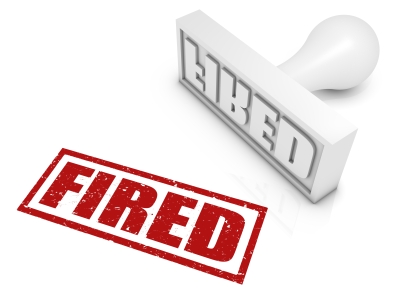By Rose O. Sherman, EdD, RN, FAAN
 The other day, I was reading an online discussion board where a new graduate had posted a question about how to handle future interviews if you were fired from a first position. Most of those answering her question suggested that she should be honest in job interviews. They correctly observed that recruiters often learn the truth from other sources and it would be better if it came from her. There was little else offered in terms of suggestions. It brought me back to a discussion I had with a former student who was fired from her first leadership role. She acknowledged that she was failing in the position. This particular employer had a policy of not reassigning managers to staff roles. “Where do I go from here”, she asked. We sometimes think about job firings as a rare event but they are becoming more common in today’s environment. Rebuilding your career after you have been fired can be challenging because you may feel emotionally shaken from the experience. Here are five tips from human resource experts:
The other day, I was reading an online discussion board where a new graduate had posted a question about how to handle future interviews if you were fired from a first position. Most of those answering her question suggested that she should be honest in job interviews. They correctly observed that recruiters often learn the truth from other sources and it would be better if it came from her. There was little else offered in terms of suggestions. It brought me back to a discussion I had with a former student who was fired from her first leadership role. She acknowledged that she was failing in the position. This particular employer had a policy of not reassigning managers to staff roles. “Where do I go from here”, she asked. We sometimes think about job firings as a rare event but they are becoming more common in today’s environment. Rebuilding your career after you have been fired can be challenging because you may feel emotionally shaken from the experience. Here are five tips from human resource experts:
1. Don’t begin interviewing until you have gained perspective on what has happened.
Getting fired from a position is difficult but gaining perspective is important. You need to be able to convince employers that, regardless of what happened in the past, you are a strong candidate for the position and can do the job. It is hard to do this if you convey anger or appear depressed. Taking action too quickly can lead to bad decisions. It can be tough to calm your anxious thoughts, but this is the smartest thing you can do.
2. Keep your cover letter and resume positive but don’t lie on an application or in interview.
Getting fired happens, for many reasons. Employers know that. You may feel that are the only person who has ever been fired, and that the interviewer will not understand their situation. This is what sometimes leads candidates to be evasive in their interviews. While it is fine not to put this in a cover letter or resume, never lie on an application or in an interview if you are directly asked if you were fired from the position. Most organizations do background checks and this information could be part of the report.
3. Don’t be negative about a former employer.
Take some time to prepare answers to questions about the circumstances involving your firing. Practicing your response will help you to feel more confident and less hesitant. The more you say it, the less painful it will be. Never be negative about your former employer even if you feel you were unfairly treated. You can say that the job did not work out but you think this organization would be a great fit for you and your skills. If there are things that you feel like you learned from the experience or could have done differently – talk about them. If your firing was a result of a personal problem or critical life situation – acknowledge it and say the problem is now solved. Don’t spend too much time talking about this in the interview – you want to showcase your skills.
4. Network but be cautious about what you share about your experience on a social networking site.
You will want to network with friends and colleagues who can help you in your job search but be cautious about how much you share about your experience. Professional sites like LinkedIn can be an excellent place to start. You will need to work on a well-crafted professional profile.
5. Reframe your job loss
Given enough time and space from the experience, you may find that it was a blessing in disguise. Sometimes, we choose work that is not really the best fit for us and we are not successful. This can be a painful but valuable lesson learned. Figuring out where you really belong in the world, and what type of work you are meant to do can be a challenge but is worth the journey.
Is getting fired painful? Without question, it is and you may feel like a failure. But it is not the end of your career and could lead to personal growth and development that takes you to bigger and better places.
Read to Lead
Johnson, S. (2013 Forbes Blog) Six Things Not to Do if You are Fired.
Levin-Epstein, A. (October 23rd, 2012 CBS Money Watch Blog) Fired – How to Explain it in Interview
© emergingrnleader.com 2013


 LinkedIn
LinkedIn Instagram
Instagram